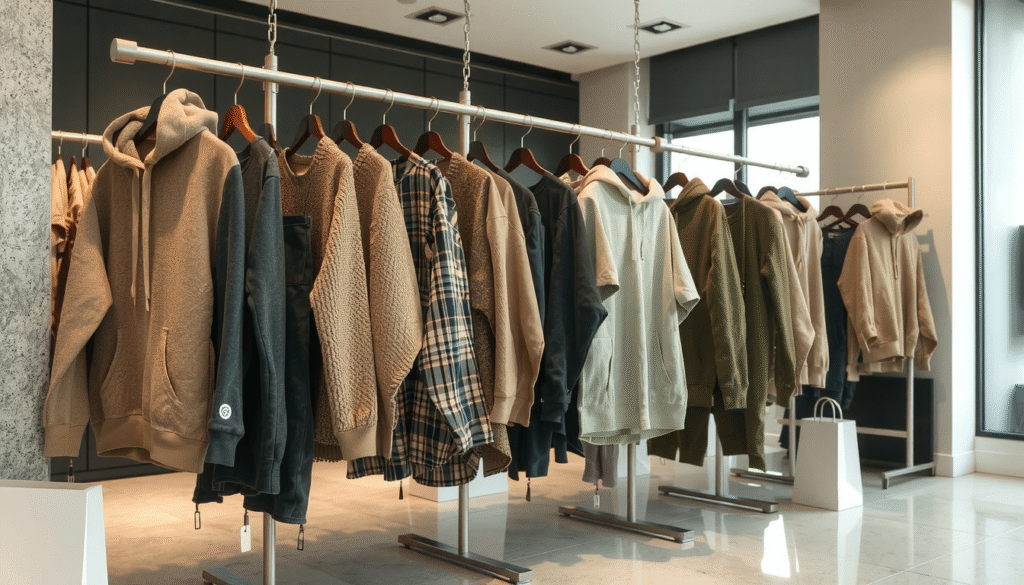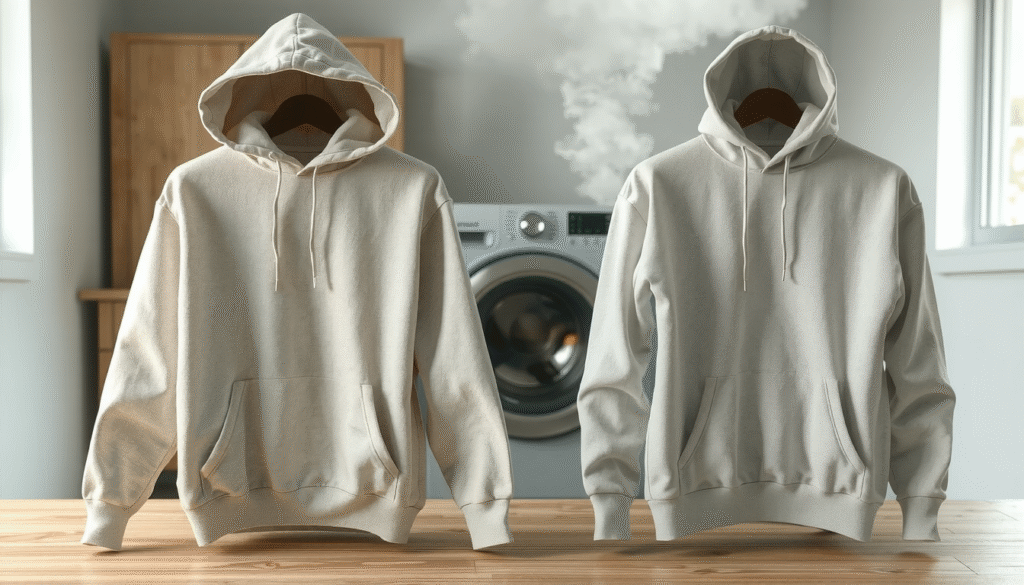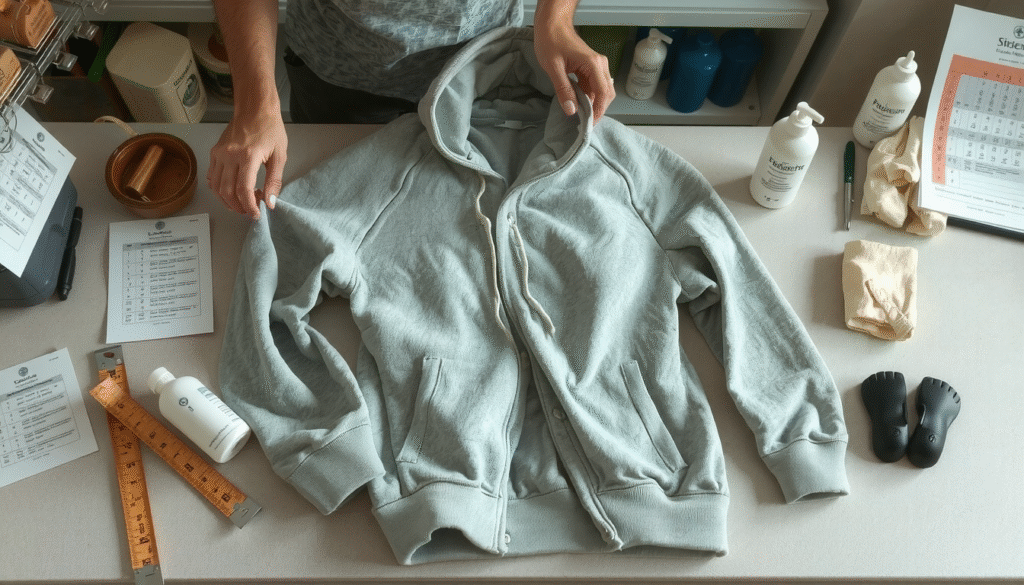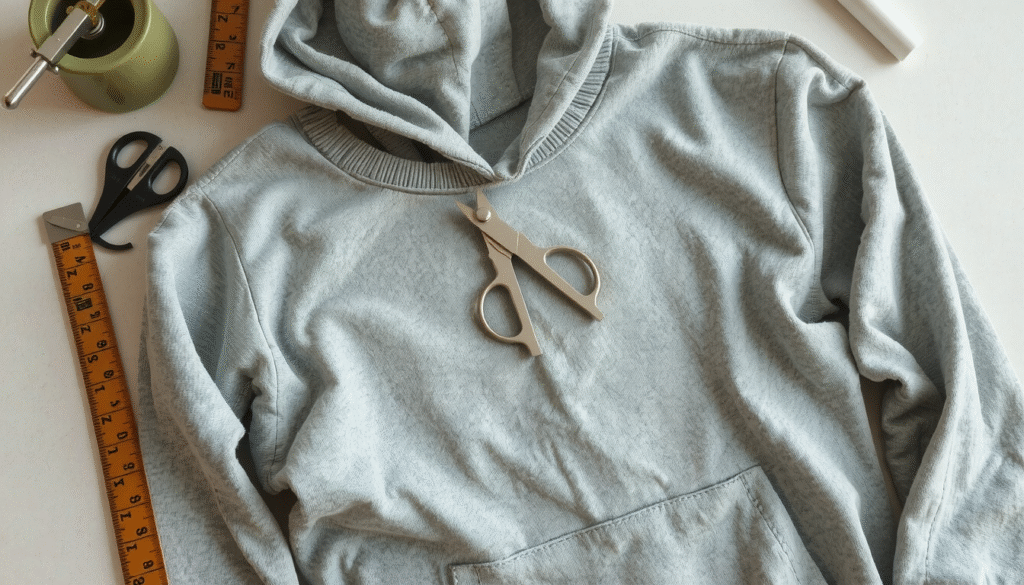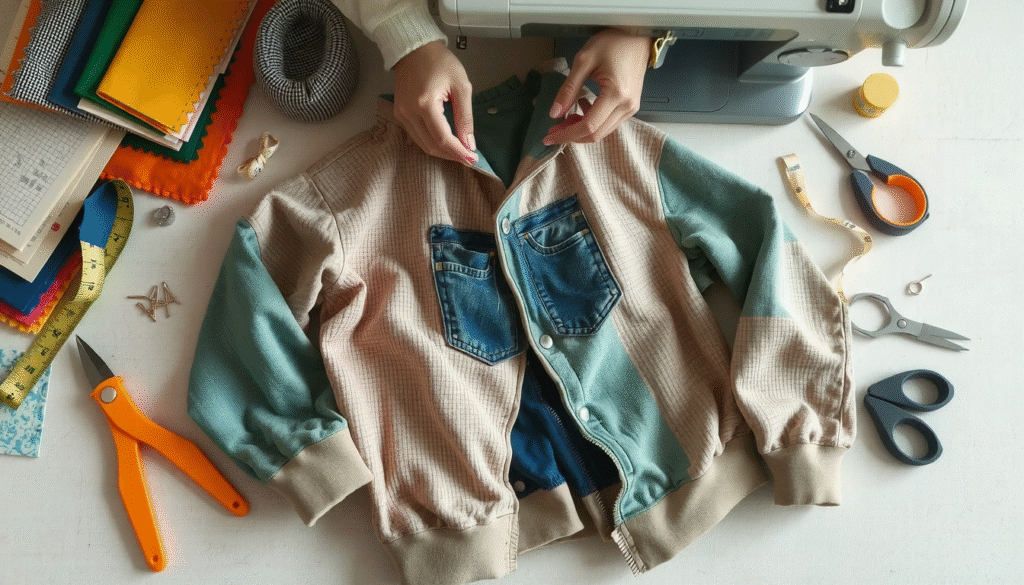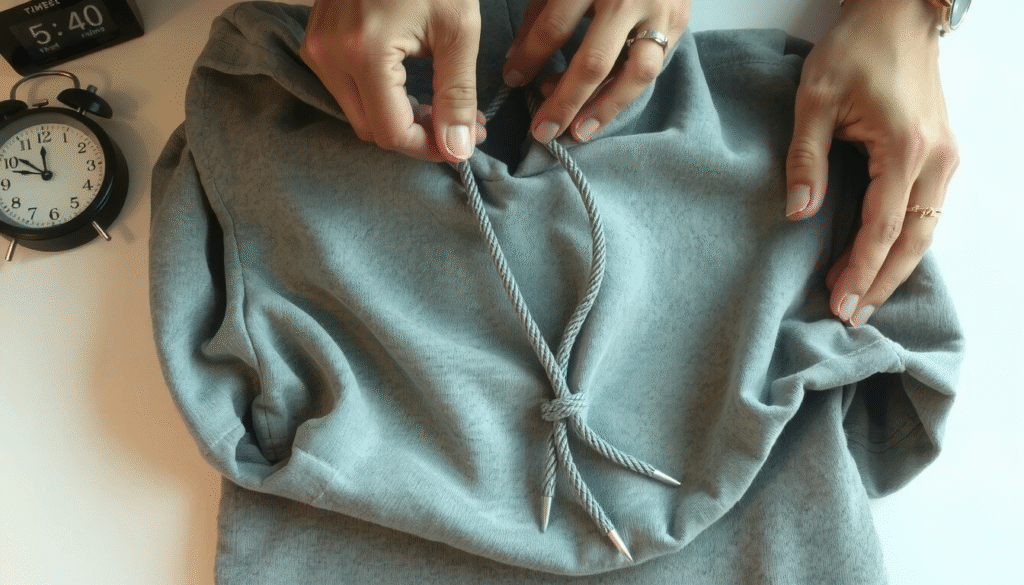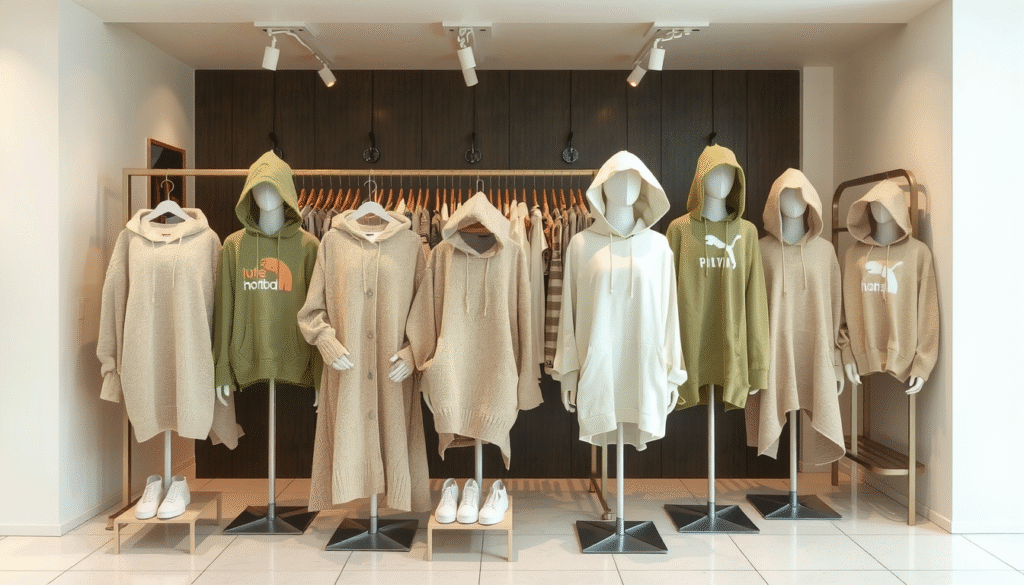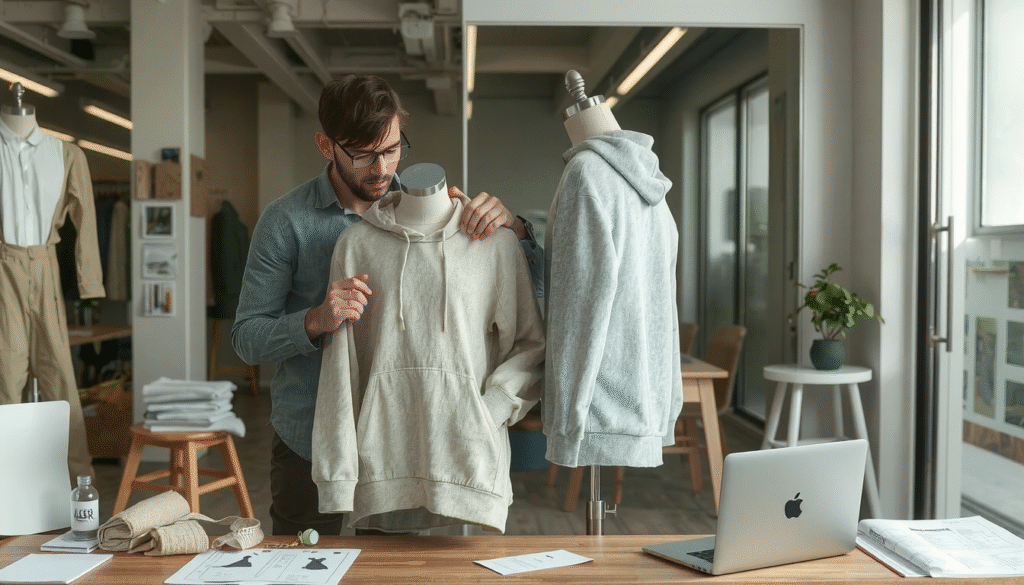Your clothing line’s triumph factors in more than just appealing designs. The first thing that should definitely be done is finding the suitable clothes vendor. Getting a dependable vendor is among the very first and essential deeds that you will conduct.

This guide is going to furnish you with the knowledge which is necessary to know and do many different things. First of all, we will identify different types of vendors and tell you where to find them. Secondly, we will discuss key questions regarding their verification. In addition, we will touch on ways of establishing a solid relationship between you and the vendor. Selecting a clothing vendor is a monumental choice.
The steps below will empower you to escape the loop of errors that are expensive. You can have top-notch supply chain products. You can do this by implementing strong supply chain practices right from day one.
First, What Kind of Clothes Vendor Do You Need?
Before you search that you should first realize what you are going to get. Different vendors fit different business types. Knowing them will help you find a partner that has the right goals and budget for your brand. A reputable clothing vendor is a key to your success.
Clothing Manufacturers: The Creators
Clothing manufacturers are factories that make your clothes from raw materials. You give them your designs in a file called a “tech pack.” A tech pack is a detailed plan for your clothing item.
This option works best for brands that want completely unique products. You have full control over the design, fabric, and fit. This path takes more work but gives you the best chance for a unique brand.
Wholesale Vendors: The Curators
Wholesale clothing vendors buy clothing from various manufacturers in bulk and sell them to retailers like you in smaller sizes. It is easy to sell many brands and styles this way since they are already designed and ready to go.
This solution is suitable for boutiques and shops. It allows you to monetize many brands and styles quickly. You do not have to manage the complex process of making products. Supreme fashion items can be put in stores much quicker.
Dropshipping Suppliers: The Hands-Off Partners
With dropshipping suppliers, you do not need hold any inventory. When a customer makes an order from your website, the supplier ships directly to the customer. You never see, touch or store the product.
This model works well for new business owners. It allows you to test the market with almost nothing upfront. It is a low-risk way to start a clothing business and find a clothes vendor that works for you.
Table: Choosing Your Vendor Model
We have prepared a simple comparison table to help you make a decision. It can be seen the main differences between each type of clothes vendor.

| Feature | Clothing Manufacturer | Wholesale Vendor | Dropshipping Supplier |
|---|---|---|---|
| Product Uniqueness | High | Low | Low |
| Upfront Cost | High | Medium | Very Low |
| Profit Margin | Highest | Medium | Lowest |
| Minimum Order (MOQ) | Typically High | Low-Medium | None |
| Inventory Management | You manage | You manage | They manage |
| Best For | Custom brands | Boutiques | Beginners testing |
Where to Find a Reliable Clothes Vendor: 5 Proven Ways
Once you know the type of supplier you need, it is time to start looking. Finding a trustworthy clothes vendor can feel hard. But these proven ways will give you a great place to start.
Online B2B Marketplaces
Online B2B marketplaces are the platforms through which retailers and suppliers connect. They are similar to a huge shopping mall. You can find thousands of products and vendors at one spot.
Popular platforms for wholesale sourcing include sites like Wholesale7: Online Wholesale Clothing Vendor fo… and OrangeShine: Wholesale Fashion Clothing Marketp…. These websites permit you to filter by item type, price, and location. Thus, you have an easier time looking for a good vendor.
Industry Trade Shows
Trade shows are where vendors showcase their products. Attending such an exhibition is one of the most effective ways to find partners. In this way, you can see and touch the clothing in person. The first glance helps you to judge the quality.
Based on our experience, the energy at a trade fair always creates a fantastic atmosphere. Being able to meet vendors face-to-face creates a strong bond. Be smart. Take business cards, note down things, and request to see their latest catalogs. This is the moment for you to ask all the details and locate a good clothing vendor.
Social Media & Niche Forums
You may stumble upon vendor leads in certain unusual places. For instance, on LinkedIn, you can do a job title search for “apparel production manager” or “textile sourcer.” These professionals usually are the ones who reveal such knowledge and hooks.
Websites like Reddit have communities, such as r/clothingstartups. Brand owners discuss their experiences with different suppliers there. Always watch out and verify any information that you may acquire on public forums.
Strategic Google Searches
A simple search can be effective and provide you with useful information if you are specific. Instead of only typing “clothes vendor,” elaborate your search with more specific steps. For instance, you may use “boho wholesale clothing USA,” “private label activewear manufacturer,” or “low MOQ clothes vendor Europe” as your search terms. The more specific your search words are, the better your search results will be.
Leverage Industry Networks
Referrals are sometimes the best leads. Connect with other business operators that are in different niches. They might have an interest in turning their lines to yours and sharing the connections they have. Joining fashion industry groups can also be very helpful. There is often valuable advice from industry networks like The Boutique Hub that provide directories of checked suppliers. These networks have already done some of the hard work for you.

The Checking List: 10 Important Questions to Ask
Before you move forward with any supplier you absolutely have to do your due diligence. The right questions are the major way to ensure business protection. They will also make things easier. The questions presented below are to provide a guide in your conversations with clothing suppliers.
1. What are your Minimum Order Quantities (MOQs)?
MOQ is the least amount of an item a vendor can sell. Make sure to inquire whether this is for per style, color, or size. A high MOQ could be very burdensome for starters in the financial aspect. This is usually the first question to ask.
2. Can you provide a full pricing sheet?
You must be able to know the unit cost of each one. Apart from this, enquired if they set annual prices for extra bonuses. A complete sheet that has prices will help you to plan your profit margins rightly. It is advisable to avoid any supplier that is not open about costs.
3. What is your sample process and cost?
Never do a bulk order without getting a sample first. A perfect vendor should have a set of procedures to follow in order to order samples. Inquiry should cover their cost and arrival time. The overall quality is often indicated by the sample quality you receive.
4. What are your typical lead times?
Lead time is the span between order placement and its receipt. It includes production period and shipping time both. Your inventory and marketing plan are better planned when you are armed with this information. Extended production times can mean that you lose an entire sales season.
5. Can you provide client references?
Get examples of different brands that they work with or have worked with in the past. A secure and good clothing vendor will send references without any problem. This gives you the chance to check with their clients and their quality of work in the practical part.
6. What is your quality control (QC) process?
Quality control is the vendor’s approach to ensure every product is in accordance with your standards. Inquire how they address checking for defects, color matching, and the right size. A strong QC process is the heart of any such business’s error and return reduction.
7. What are your payment terms and methods?
Familiarize yourself with both payment forms and plans. The typical one is 50 up front for starting production and 50 before the delivery of the finished product. Make sure to confirm what form of payments they accept, such as wire transfers, credit cards, or PayPal.

8. How do you handle returns or defects?
Problems? They might happen, a good partner has a fair process for defective items or order errors, and returns. This question’s answer that they will give shows their willingness not just to sell once, but to be in a partnership.
9. Do you offer customization or private labeling?
This question is absolutely vital for brands that want to be different. Private labeling means that you can put your own brand tags on their products. To create something truly distinct, you may need to pick a partner with strong manufacturing abilities. The best way to achieve this is often by collaborating with a clothing manufacturer directly.
10. Who will be my dedicated point of contact?
Clear and consistent communication is of the essence. Ask who your major contact will be. If you have just one point of contact this makes it easier to sort out problems and follow up. It will create a strong partnership with your clothes vendor.
From Sourcing to Selling: Building a Strong Partnership
Hunting clothes vendors is just the start. The next part is placing your first order and building the peering property. This will drive your brand a long time.
Placing Your First Order: From Sample to Bulk
After you have signaled that you agree with the final sample, it is time for the bulk order. You will process a Purchase Order (PO). It is a document that shows the style, colors, sizes, and quantities you wish for. Exchange information about the production time and payment schedule before the vendor proceeds.
Customization Spotlight: Making Products Your Own
Customization is the ability to turn a generic product into one that is uniquely yours. This is the very attribute that separates a strong brand from a simple reseller. Some brands go to the extent of making the entirety of their brand built around a single product. If streetwear is what you’re into then finding an expert hoodie manufacturer is paramount to achieving that perfect fit and feel.
Creative printing techniques are also a way of differentiating yourself. Teaming up with a specialized puff print hoodie manufacturer will allow you to have trendy and value-rich items. At the end of the day, these kinds of things are what the customers observe and would be happy to invest more on.
Building a Long-Term Vendor Relationship
Your clothes vendor is not just a supplier; he is your partner as well. The solid relationship is based on mutual respect and trust. Based on our experience here are some recommendations concerning building a long-lasting partnership.
- Be respectful and communicate clearly. Your emails and calls need to be professional.
- Always make timely payments. This is the best way to be treated as a respectful client.
- Give useful feedbacks. Review files that will show that a quality issue is unclear. If everything is perfect, let them know you are satisfied with the product or service.
- Share your projections and needs. Giving your vendor an idea on your future necessities helps them in their own production planning.
Frequently Asked Questions (FAQ) about Clothes Vendors
Here are answers to some common questions new brand owners have when looking for a clothes vendor.
Q1: How much money do I need to start with a wholesale clothes vendor?
A: The total may vary significantly. Some vendors might have the lowest first order of $100-$250. Others may require $1,000 or even more. Always confirm the Minimum Order Quantity (MOQ) and per item price to evaluate the launching cost.
Q2: Can I use multiple clothes vendors for my boutique?
A: Certainly. Indeed, using several vendors is a clever move. It not only makes it possible for you to have a great selection of products but also it is a risk reduction strategy. If one supplier has a problem, others will be available.
Q3: What’s the main difference between a clothes vendor and a clothing manufacturer?
A: A clothes vendor, or wholesaler, typically sells pre-made clothing from various brands. A clothing manufacturer physically produces the clothing for you based on your custom designs. They offer much more control over the final product.
Q4: How do I handle international shipping and customs?
A: Your overseas vendor should provide shipping options, like air or sea freight. You will likely need to work with a customs broker to handle import taxes and paperwork. Many shipping companies like FedEx or DHL offer brokerage services. This can make this process simpler.
Q5: Is it better to find a local or an overseas clothes vendor?
A: It depends on your priorities. Local vendors offer faster shipping, easier communication, and a “Made Locally” marketing benefit. But they can be more expensive. Overseas vendors often have lower costs but come with longer shipping times and more complex logistics.
Conclusion: Your Vendor is Your Partner in Success
We have covered the entire journey of finding the right supplier. We started with understanding the different types of vendors. We then explored where to find them and the importance of careful checking.
Remember that the relationship with your clothes vendor is one of the most critical partnerships you will build. They are not just selling you products. They are helping you create your brand’s vision. A great vendor can provide quality, reliability, and valuable industry insight.
Armed with this knowledge, you are now ready to begin the exciting process of finding the perfect partner. They will help bring your fashion brand to life.



